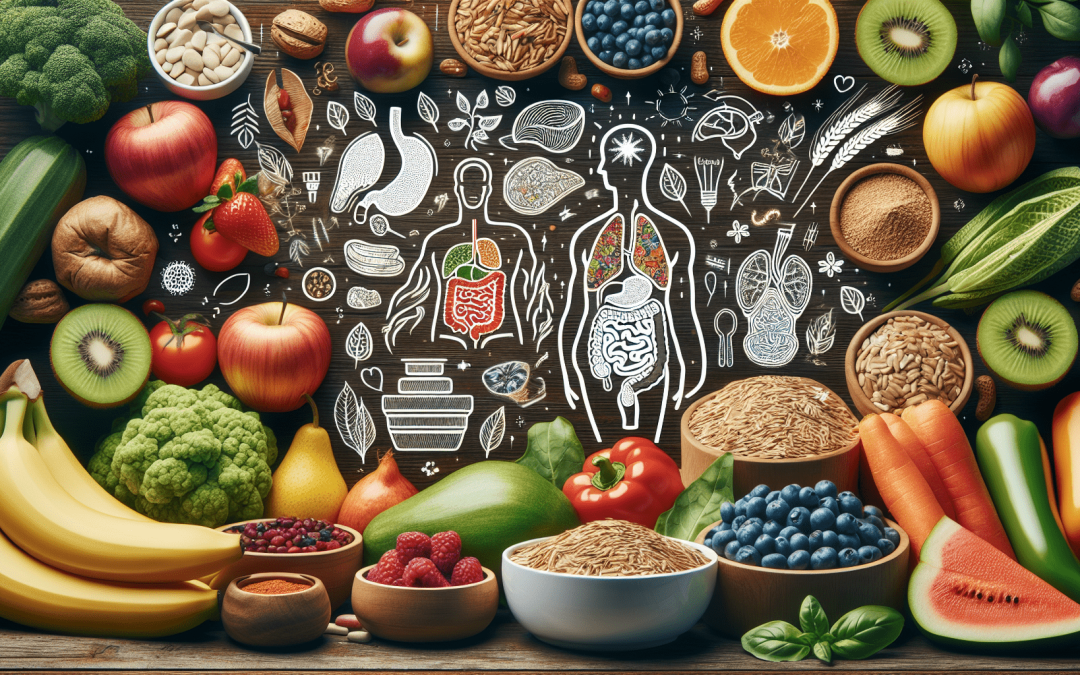1. The Foundation of a Healthy Diet
Understanding Dietary Basics
In 2025, recognizing the importance of fruits and vegetables has become essential for maintaining a balanced diet. These food groups provide vital nutrients that the body cannot produce on its own. Incorporating a variety of fresh produce ensures we meet our daily nutritional needs, supporting overall health and vitality.
Research indicates that diets rich in fruits and vegetables decrease the risk of chronic illnesses, including heart disease, diabetes, and certain cancers. They contain essential vitamins, minerals, fiber, and antioxidants that protect our cells from damage. Making these foods central to our meals is a simple yet powerful step toward better health.
As someone passionate about wellness, I recommend setting realistic goalsâlike including at least five servings dailyâand gradually increasing these as you experience the benefits firsthand.
2. Nutritional Powerhouses
Essential Vitamins and Minerals
Fruits and vegetables are loaded with essential nutrients. For example, citrus fruits are high in vitamin C, which supports skin health and immune function. Leafy greens like spinach provide iron and calcium vital for bone health. The diverse array of produce ensures we consume a broad spectrum of vital nutrients.
In 2025, nutritional science emphasizes bioavailabilityâthe ability our bodies have to absorb these nutrients effectively. Selecting a colorful variety guarantees intake of different phytochemicals and antioxidants that work synergistically.
Personally, I find that incorporating seasonal produce not only boosts nutrition but also supports local farmers and sustainability efforts.
3. Disease Prevention Benefits
Lowered Risk of Chronic Diseases
The importance of fruits and vegetables in preventing diseases cannot be overstated. Multiple studies, including recent data from 2025, show that increased consumption correlates with lower incidence of cardiovascular diseases, strokes, and certain cancers. For example, the antioxidants in berries combat oxidative stress, a key factor in aging and disease development.
Additionally, fiber-rich produce helps regulate blood pressure and cholesterol levels, further reducing risk factors. Emphasizing these foods in daily diets is an evidence-based approach to disease prevention.
For practical tips, aim to include a fruit or vegetable in every meal, from smoothies for breakfast to salads or roasted veggies for dinner.
4. Managing Weight Effectively
Eating Low-Calorie, Nutrient-Dense Foods
One of the most compelling reasons to focus on the importance of fruits and vegetables is their role in weight management. They are naturally low in calories but high in fiber and water content, making you feel full longer. This support in controlling appetite helps avoid overeating and supports weight loss goals.
Huge Discount on the Best Certified Organic Whole Food Supplement!
In 2025, many diet plans prioritize plant-based foods for sustainable weight management. For example, swapping calorie-dense processed snacks for crunchy carrot sticks can make a noticeable difference. Plus, fiber aids digestion and helps stabilize blood sugar levels.
My advice is to plan your meals around produce-rich options, ensuring you get the nutritional benefits without excess calories.
5. Enhancing Immune System Function
Boosting Natural Defenses Naturally
The importance of fruits and vegetables in strengthening our immune system has become increasingly clear in 2025. Vitamins like C and E, along with phytochemicals such as flavonoids, help fortify our defenses. For example, bell peppers and citrus fruits are excellent sources of vitamin C, which supports the production of white blood cells.
Consuming a variety of produce ensures a broad spectrum of immune-boosting compounds. Regular intake can help prevent common illnesses like colds and flu, especially during seasonal changes. Incorporating colorful produce into your diet is a simple and effective way to enhance resilience.
Practical tip: aim for a rainbow on your plate dailyâdifferent colors mean different nutrients that contribute to immune health.
6. The Role in Digestive Health
Promoting Regularity and Gut Microbiome Balance
Fruits and vegetables are vital for digestive health, primarily because of their high fiber content. Fiber not only promotes regular bowel movements but also feeds beneficial gut bacteria, supporting a healthy microbiome. This is crucial for overall health, influencing everything from mood to immunity.
Research in 2025 underscores how fermentable fibers help produce short-chain fatty acids, which reduce inflammation and improve gut barrier function. Including a variety of produce like apples, carrots, and broccoli helps maintain this delicate balance.
To boost gut health, try to include fiber-rich options at every meal, and consider fermenting or pickling vegetables for added probiotics.
Conclusion
In summary, understanding the importance of fruits and vegetables is fundamental to achieving optimal health in 2025. These nutrient-dense foods support everything from disease prevention and weight management to immune function and digestion. Making a conscious effort to incorporate a diverse array of produce into your daily routine can lead to long-lasting health benefits. Remember, the importance of fruits and vegetables extends beyond individual healthâit’s a key component of sustainable living and a healthier future for all.
Frequently Asked Questions
- 1. Why is the importance of fruits and vegetables higher in 2025?
- With new research and updated dietary guidelines, 2025 emphasizes the critical role these foods play in preventing chronic diseases, supporting immune health, and promoting overall wellness amidst modern lifestyle challenges.
- 2. How many servings of fruits and vegetables should I eat daily in 2025?
- The current recommendation is at least five servings per day, but many health experts suggest increasing this based on individual needs. The goal is diversity and color for maximum benefit.
- 3. What are easy ways to add more fruits and vegetables to my meals?
- Try including a fruit or vegetable with every meal, snack on raw produce, add spinach or peppers to sandwiches, and experiment with veggie-based recipes like stir-fries or smoothies.
- 4. Can fruits and vegetables help with weight loss?
- Yes, their low calorie and high fiber content help you feel full longer, making them excellent for weight management in 2025.





